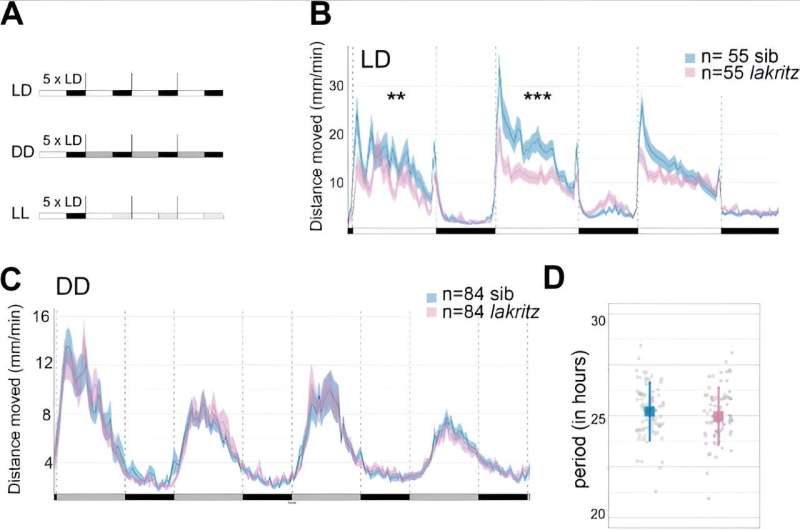This article has been reviewed according to Science X's editorial process and policies. Editors have highlighted the following attributes while ensuring the content's credibility:
fact-checked
trusted source
proofread
Lack of functional eyes does not affect biological clock in zebrafish, shows study

Functional eyes are not required for a working circadian clock in zebrafish, as a research team including CNRS scientists has now shown. The work is published in the journal PLOS Genetics.
Though it is understood that the eye plays a key role in mammalian adaptation to day-night cycles, the circadian clock is most often studied in nocturnal vertebrates such as mice.
The zebrafish, in contrast, is a diurnal vertebrate. Larvae with mutated lak genes do not have functional retinal ganglion cells, which relay what is perceived by the eye to the brain: hence, the larvae cannot see.
Through observation of various zebrafish larvae lacking functional eyes, the team of scientists has demonstrated that the latter are not needed to establish circadian rhythms that remain synchronized with light-dark cycles in the laboratory. This suggests that in some animal species, other neural circuits set the circadian clock.
In addition to molecular analyses, the researchers relied on video tracking of larval locomotion, the most reliable indicator in the study of the circadian clock. These findings reveal major differences between organisms in the regulation of circadian rhythms.
Laboratories involved in the study include the Molecular, Cellular, and Developmental Biology research unit (CNRS / Université Toulouse III–Paul Sabatier) and the Centre for Integrative Biology (CNRS / Université Toulouse Paul Sabatier).
More information: Clair Chaigne et al, Contribution of the eye and of opn4xa function to circadian photoentrainment in the diurnal zebrafish, PLOS Genetics (2024). DOI: 10.1371/journal.pgen.1011172
Provided by CNRS





















